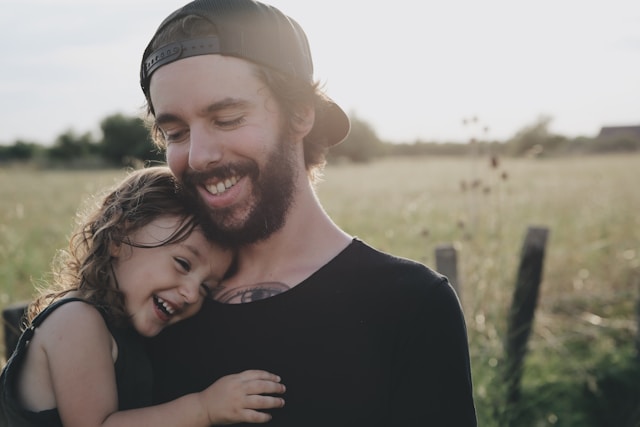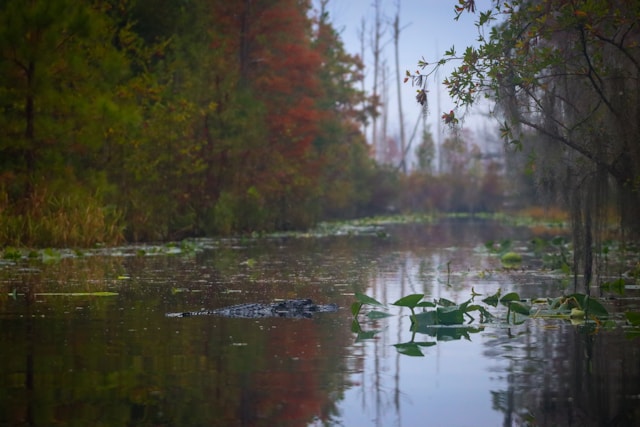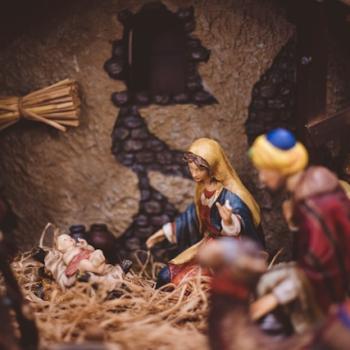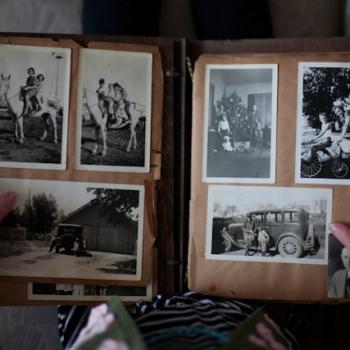
M. Night Shamalan’s most recent thriller is a sneaky Sci-Fi. Unlike many of the clear science fiction stories we have looked at in the future, like The Martian or The Foundation Series. The twist would not have held nearly as much weight if the marketing had given away the genre as it was a bit of a spoiler to even mention it. I was quite confused for the first half, but the pieces soon fell into place. Caddo Lake is about a family told through several generations. It is a family whose history is as twisted and tangled as the swamps around Caddo Lake, where they live. The story’s foundation, though, is not wet and squishy, but solid rock. What we do with our lives impacts our families for future generations.
The Foundations of Our Lives
When I first came back to the United States, I remember being a bit disgusted by everyone’s eagerness to blame their families for their ills. Everything, it seems, came about by family trauma. While I still believe it is our job to break cycles and refuse to be victims, I have come to understand a lot more about that perspective.
Caddo Lake starts by showing us the death of the main character’s mother, Anna, in a horrific car accident. The car is thrown into the lake, and we see Paris, the main character, struggling to free his mother. As he swims away, unable to pull her free, we see her hand shaking in what is described later as some form of epileptic seizure.
Paris’s brokenness at his mother’s passing is echoed in the anger and brokenness of another protagonist, Ellie. Ellie’s father had disappeared years before, and she was convinced he had died rather than abandoning her. Her anger at the lack of clear answers results in her lashing out at her mother and her stepfather.
It is the disappearance of Ellie’s step-sister, Anna, who she truly loves, that begins to unravel the mystery of the deaths and disappearances on the lake.
Our two protagonists each have very clear goals, and it’s interesting to see how they both fail and accomplish those goals. For Paris, all he wants is to rescue his mother. At first, it’s through research and explaining the unexplainable. If he can’t save her physically he wants to, at least, save his image of her.
Ellie’s goal is to find “family.” In her mind that is all about blood. She repeatedly tells her mother that no one in the current family system she has is her family. She may love her step-sister, but she is unwilling to claim any of them.
Both of their goals are strongly attached to family, and both of them impact future generations of their family through the steps they take to reach those goals.
Healing the Family Tree
The audience may be genuinely confused at first by the story’s choices at firsts. Paris and Ellie seem to be experiencing the same phenomena in the same area of the lake but are otherwise not connected. But when Ellie steps through this phenomenon and finds her family on the day when Anna disappears, she is shocked to see herself pulling up in the skiff. She has, we find, traveled back in time.
Time travel can be a bit mucky. It’s hard to keep things simple and still provide an interesting story without excessive plot holes. In many cases, it’s better to stay ambiguous. Caddo does a decent job of that by keeping the focus on the character’s interpersonal dynamics, rather than on the science.
Ellie and Paris both stumble on a time portal that only opens when the lake is low. There are, then, only certain years that people can travel to because those are the years that the lake was low and the portal was open. Many of those portals intersect with extremely important moments in the character’s family lives.
Paris, taken far back in time finds a wounded girl, unconscious on the other side of the portal. He gets her to safety and realizes he has arrived in the 50s. He then travels forward to 2022 where he is arrested when he is thought to be a kidnapper who took Anna.
Ellie, in the meantime, travels back to see her mother as a young adult, carrying Ellie as an infant on her hip. Ellie’s mother is searching for her missing boyfriend, Ellie’s father. Her front seat is full of missing posters for Paris.
Ellie has begun to piece together the reality that her father, Paris, disappeared into the portal. Her mother had believed that Paris abandoned them. When she finds out the necklace belonged to Paris’s mother, Ellie goes to a local library and begins searching through historical records.
As an audience, we realize together that Ellie’s father is Paris. And Paris’s mother is Anna.
Paris was able to find his father in the hospital while escaping police custody. He tells his father that he has accomplished his goal of saving his mother. Paris explains that he will come back to him. He is never able to, though. He drowns in 2022, attempting to return.
Ellie is able to return through the portal and is met by her stepfather. The two embrace, and Ellie tells him that Anna is safe, but will not return. She also explains that they are, indeed family. With the time jump, this means that her stepfather is also her great-grandpa.
So both characters do accomplish their goals. Paris saves his mother, and Ellie finds her blood. These realisations help both of these characters heal their relationships with their family and end the trauma that has gripped their family. This is especially clear when we see Ellie sitting with her mother, explaining to her the truth that neither Anna nor Paris wanted to leave the family. On the television pictures of Paris overlap with a story detailing his death. Ellie had once hated her mother, but now not only is her relationship with her mother healed, but we know that their family will have more peace in future generations now that the truth is known.

To the Third and Fourth Generation.
A contentious verse, and one many people cite as proof of the Old Testament God’s “cruelty”, is Exodus 34:7. It states that God “maintains loving devotion to a thousand generations, forgiving iniquity, transgression, and sin.” But He “will visit the iniquity of the fathers on their children and grandchildren to the third and fourth generation.”
I, personally, like to focus on the first promise. Loving devotion to a thousand generations seems like it would dwarf the iniquity of the fathers on two to three future generations. But I understand the tension. Especially for those who are carrying generational trauma, it’s hard to look beyond the iniquity to find the loving devotion behind it.
Generational trauma seems to be inevitable. Perhaps that is because we, as humans, are all sinners. We all have iniquity. Keeping those behaviors from flowing downstream when we teach so much to the next generation is nearly impossible.
There is a powerful positive note, though. Change is also inevitable, and it also impacts future generations. It may be harder to accomplish positive change, but it is possible.
My own grandfather came from a long line of abusers and alcoholics. He married a good Christian woman, and together they raised a family that is still mostly church-going believers.
Many of you who have been raised in a Christian family have similar stories. Some of you are the originators of your own stories. You yourselves have chosen to turn your families away from “iniquity”, as scripture calls it, and back to God’s steadfast love.
More effective than any missionary work or street preaching is a faithful and loving mother and father. What are the choices you are making and how will they affect the future generations?
Let us choose to be good, like our Father, and pour into our children, our nieces and nephews, our church Sunday schools. Let us not despair at the tide of trauma flowing downstream to us. It may be inevitable that you will suffer for your parent’s choices, and your grandparent’s choices. But you can make choices that will change future generations. Focus on those choices.
Join us on Monday, November 4th to look at The Bird Box.













